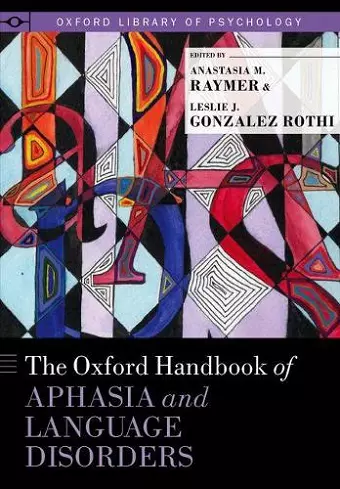The Oxford Handbook of Aphasia and Language Disorders
Leslie J Gonzalez Rothi editor Anastasia M Raymer editor
Format:Hardback
Publisher:Oxford University Press Inc
Published:4th Jan '18
Currently unavailable, and unfortunately no date known when it will be back

What is immediately clear when meeting individuals with acquired brain damage is that the patterns of communication impairments vary in remarkable ways among these individuals. Aphasia and related communication disorders, while devastating life events for individuals who acquire brain damage, provide lessons of considerable interest to many clinicians and researchers trying to understand the brain's neurological and psychological complexity and develop methods to facilitate optimum recovery of lost language and communication functions following brain damage. The Oxford Handbook of Aphasia and Language Disorders weaves theoretical and neurological foundations with rational, motivated clinical approaches to assessment, diagnosis, and intervention for aphasia and related communication disorders. The contributing authors, experienced clinicians and scientists with strong backgrounds in neurological and cognitive neuropsychological theories, bridge theory to clinical practice, reviewing the extant literature in each aphasia syndrome while exploring implications for guiding clinical decision-making. Introductory chapters provide historical perspectives on the aphasia syndromes following left hemisphere brain damage, and review aphasia assessment across the decades. The bulk of the Handbook covers aphasia syndromes, with chapters that describe each aphasia syndrome in detail, including behavioral, neural, and cognitive neuropsychological correlates and methods to assess and treat each syndrome. Additional chapters provide insights into acquired reading and writing disorders and social and prosodic communication disorders that follow damage to the right cerebral hemisphere. The final chapters examine neural perspectives on aphasia recovery and principles of neuroplasticity in aphasia treatment. As such, this book integrates neural, cognitive, and clinical perspectives to provide a broad understanding of the complexity of language and impairments that can arise following acquired brain damage, and will be of interest to scholars and clinicians in the speech-language, neuropsychology, and rehabilitation professions.
ISBN: 9780199772391
Dimensions: 178mm x 257mm x 18mm
Weight: 798g
352 pages